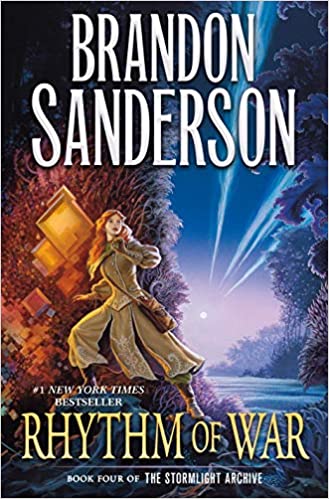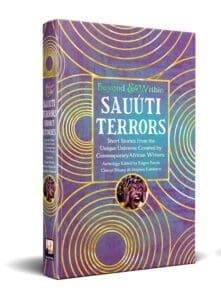My Rating: 8/10
Synopsis:
After forming a coalition of human resistance against the enemy invasion, Dalinar Kholin and his Knights Radiant have spent a year fighting a protracted, brutal war. Neither side has gained an advantage, and the threat of a betrayal by Dalinar’s crafty ally Taravangian looms over every strategic move. Now, as new technological discoveries by Navani Kholin’s scholars begin to change the face of the war, the enemy prepares a bold and dangerous operation. The arms race that follows will challenge the very core of the Radiant ideals, and potentially reveal the secrets of the ancient tower that was once the heart of their strength. At the same time that Kaladin Stormblessed must come to grips with his changing role within the Knights Radiant, his Windrunners face their own problem: As more and more deadly enemy Fused awaken to wage war, no more honorspren are willing to bond with humans to increase the number of Radiants. Adolin and Shallan must lead the coalition’s envoy to the honorspren stronghold of Lasting Integrity and either convince the spren to join the cause against the evil god Odium, or personally face the storm of failure.
Review:
Rhythm of War was one of my most anticipated reads released last year. I wanted to wait until I was in the best mindset to read it and fully enjoy it. Now I’m gonna be honest… this installment was my least favorite to read so far. RoW just didn’t captivate me the same way the other three did. That doesn’t mean I didn’t appreciate it, I mean, it’s Sanderson. The least enjoyable Sanderson is still going to be a notch above a good portion of fantasy that I’ve read.
It started off very promising, it was nice to be greeted by the characters that we have grown to love. I think one of my major issues with this installment was that I wanted more of these characters. We got QUITE a bit of Venli, a bit of Rlain, and some other side characters throughout it. Seeing Rlain’s POV was interesting, but the amount of Venli made me glaze over. I know I should be more appreciative of her POV but I just don’t find her as compelling as the other characters.
Shallan and Kaladin are both going through major depressive episodes. Kaladin is experiencing PTSD and Shallan’s personality disorder has gotten extremely disruptive. Where Shallan’s multiple personas used to be pieces of her, they seem to be taking over. We get less and less of Shallan herself. At first I thought this was an oversight by Sanderson, that he didn’t realize how jarring this was. Silly me for assuming because of course, this was intentional. It all eventually plays into the advancement of the plot. Whereas Shallan has a tendency to hide from her issues, Kaladin has finally realized that he is reeling from his trauma. He’s experiencing full-blown battle shock and coming to grips with the fact that his life might not be taking the route he once expected it to. His life as a soldier may be something he has to put on hold or shelf forever. Sanderson deals with these delicate issues expertly, pulling emotion out of his characters and us readers as the story progresses.
“‘It will,’ Wit said, ‘but then it will get better. Then it will get worse again. Then better. This is life, and I will not lie by saying every day will be sunshine. But there will be sunshine again, and that is a very different thing to say. That is truth. I promise you, Kaladin: You will be warm again.’”
I think he really made Adolin shine at these moments. The bromance that has struck up between Adolin and Kaladin warms my heart, the camaraderie between these two and with Shallan as a group will bring a smile to your face. Adolin, the sunshine boy, is fully capable of taking on the weight for the three of them. He lets both of them feel their feelings. He gives Shallan room when she needs to take on one of her other personas and he doesn’t let Kaladin be alone in those dangerous moments where he’s mentally secluding himself.
“‘No one ever accomplished anything by being content with who they were, Shallan,’ Adolin said. ‘We accomplish great things by reaching toward who we could become.’ ‘As long as it’s what you want to become. Not what someone else thinks you should become.’”
Speaking of Adolin, we really see him trying to separate himself from the image that his father has set out for him. Adolin is obviously resentful of having to be the golden boy when his father has made plenty of mistakes in his life. He’s having a bit of an identity crisis and trying to find who he is compared with the path that Dalinar has set out for him. The thing I love about Adolin is that even when Adolin is being rebellious, he is still always pure of heart. Sanderson has truly made him a person that I could never hate. This is not a challenge, Brandon, please don’t try.
We see other characters take on their own journeys, too. Navani, Venli, Rlain, Szeth, and Taravangian are major plot influencers this time around. Okay, Taravangian is ALWAYS a major plot influencer. I won’t go into their paths but a lot about the Cosmere and the future of Roshar is revealed through their POVS. One thing I can say for Rhythm of War is that even though it is my least favorite installment so far, it has provided us so many links to the Cosmere that we didn’t get previously. This book was a lot of building towards the mid-series finale. I think RoW is one of those books that will age well upon future reads, especially after the next book is released. It made me want to sit down and reread the rest of the Cosmere books and the random ones that I haven’t gotten to yet so that I could find any connections that I am missing.
I mentioned Taravangian and something that really floored me is how easily Dalinar could have become Taravangian. They both know about destruction, they both have made brutal decisions for what they believed was the greater good. Dalinar obviously took a different path as his life progressed, but he could have easily became a man who took over their kingdom(s) with his own plan in mind. Dalinar is capable of evil, but he’s chosen to do good. Taravangian believes that to do good, sometimes you have to choose evil. What makes all the difference between Taravangian and Dalinar is that Dalinar has faith in the impossible. He is willing to strive for the impossible to save more lives, instead of just choosing the greater of two evils. Taravangian is willing to sacrifice everyone around him because he sees no other way to achieve his plans. He’s clinical in his abilities, where Dalinar chooses compassion. I think this comparison shows the route Dalinar’s life could have taken if he didn’t change his course. Taravangian’s life is not enviable, whereas Dalinar is now surrounded by love and light. Sanderson makes us think about how our decisions will affect our lives and the lives of those around us in the long run. He manages to portray a subtle discourse on politicians and their abilities to achieve more than they claim they’re able to. One of my favorite things about Sanderson is he can approach societal topics without being preachy, instead just integrating them cleverly into his books. He’s woven commentary about mental health, politics, religion, and social injustice into all of his plot lines. The thing that separates him from other authors is that he manages to not make anyone feel alienated while doing so.
“Wit lingered, smiling at Dalinar. ‘I agree with her,’ he whispered. ‘And on the topic of monarchs, I will have you know that I find you to be an endearing despot. You’re so pleasant, I almost don’t find it horrifying that I’m living among a people willing to trust a single man with near-absolute power over the lives of hundreds of thousands—while completely ignoring proper checks and balances upon his potential greed, jealousy, or ambition.’”
The first 300 pages and the last 300 pages of this novel were a breeze and completely pulled me in. It was the middle that dragged for me a bit, and that’s mostly due to the fact that my favorite characters were more heavily featured in those outer sections. I do think that RoW could probably have been condensed a bit more. It felt that at times we weren’t really gaining anything from some of the chapters. Does that mean I won’t devour the next 1200 page book that he puts out? No. I’ll gobble it up like warm apple pie with some vanilla ice cream on top. Sanderson can pretty much do whatever he wants at this point and we will all accept it because we know that eventually there will be major payoff.
Sanderson has many surprises in store for us. There’s betrayal, huge decisions, some death. To be honest, I expected a lot more heartache. Outside of dealing with Kaladin and Shallan’s traumas, this was a very mild book in regard to the pain that Sanderson has been known to put us through. The final scene of this book blew my mind. The experience of that scene gave me chills and made me want the next book immediately. There’s not much I can say at this point without spoiling the plot for people who haven’t read it yet, so I’ll leave it at this: if you haven’t read The Stormlight Archive yet, what are you waiting for?
“Heroism is a myth you tell idealistic young people—specifically when you want them to go bleed for you.”





Leave a Reply